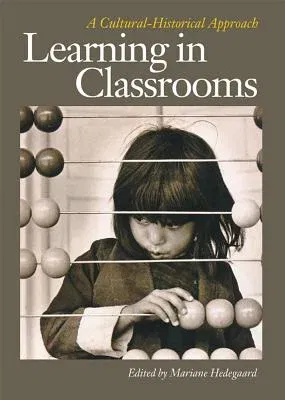Using Vygotsky's ideas, this book contributes to the cultural-historical
study of school children's learning. The focus is not only on activities
within the classroom, but on the importance of various extraneous
conditions, for example educational ideology that can influence both
instruction and learning. The comprehensive material is presented under
five headings: 'School Traditions and Learning' which includes chapters
covering the problem of gender and special-needs education; learning
strategies in elementary school; and ZPD in a schooling context.
'Educational Practice that Combines Community Knowledge and Social
Science Studies' offers a look into dialogic research on learning about
the Kobe earthquake; the cultural identity of minority children; a
description of the way children in an inner-city youth program talk and
think about science, and relating how the children were responsible
themselves for a project involving the growing, harvesting and marketing
of herbs, flowers and vegetables; the transforming of ethnocultural
traditions in a modern environment. 'Everyday Knowledge and Mathematics
and Physics Learning' considers cognition in the classroom and analyses
the teacher/learner interactions that take place during a mathematics
class, with special focus on the cultural-historical approach; and a
study of learning activity in a Japanese mathematics classroom.
'Diversity in Learning Modes' examines how students become subjects of
cooperative learning activity--here the strategies developed by girls
seem to sustain 'mutual support', while the traditions that characterize
the learning strategies of boys do not show the same level of
cooperation; teacher-student interaction; the socio-moral self-concept
of 12 year old Finnish children. 'Classroom Interaction and Discourse'
covers the interactions between knowledge and school environment;
understanding classroom practice; knowledge through childhood memories;
and different ways of organizing salient and problematic action. This is
an important book for teachers, administrators and others who want to
know more about how teachers teach and children learn.

